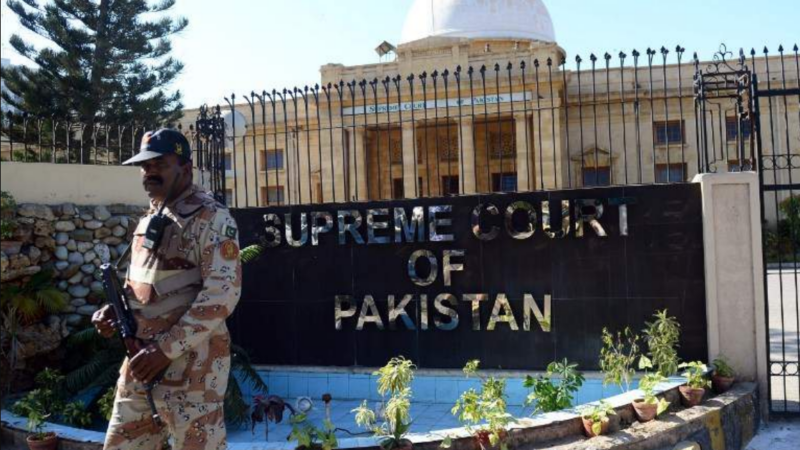M.E. moves: Pakistan fears losing jobs, remittances

Advertisement
An adverse, even hostile, combination of Covid-19 pandemic, security-related issues, fast-changing geopolitics of the Middle East and domestic economic stress, is making Pakistan nervous at prospects of losing the principal market of its 1.2 million workforce abroad and their remittances.
To be on the wrong side of history when it is making rapid strides can be galling for a nation. Add to that Pakistan’s own petulance in diplomacy, be it with the United States or the Islamic world that it aspires to lead. Add to them hostilities with India.
Almost 90 percent of Pakistan’s workforce abroad is in the UAE and Saudi Arabia. From the UAE alone, remittances add up to $4.6 billion. Now, the UAE has stopped issuing fresh employment visas to 13 countries, almost all of them with Muslim populations, including Pakistan.
The sheikhdom is processing applications on its virtual employment site, which means it is bypassing those who are awaiting jobs and those who had to leave work due to Covid-19. Those who have taken leave cannot easily return. They do not lose their jobs, though. But it is a matter of time when the UAE authorities may hand them over the Arab version of the American “pink slip.”
The State Bank of Pakistan (SBP) relies heavily on remittances by the mostly-blue collared workers in the Gulf. Pakistan plans much of its economic activity on them. A drying-up, or even a shortfall could throw Pakistan’s economy into a tailspin, experts in Islamabad and those at the global economic and employment agencies warn.
In its annual report, the SBP says: “Over 100,000 overseas jobs for which the recruitment process was going on in the country was disrupted due to Covid-19 and is not going to recover unless the recruiting projects are revived.”
“Around 50,000 Pakistani migrants faced layoffs in different countries. These jobs may not be recovered in the short term and are thus extremely vulnerable,” it added.
Using data compiled by the Bureau of Emigration and Overseas Employment (BEOE), the report says that around 60,000 Pakistanis were recruited for overseas work, but could not proceed abroad due to travel restrictions and suspension of flight operations. The BEOE also categorizes these jobs as extremely vulnerable.
In addition, 50,000 emigrants (Azaad Visa excluded) returned on paid or unpaid leaves as of June 20. These workers have not been laid off, but their job continuation entails risk, said the report.
In case of forced dismissals, workers also did not receive compensation, and other dues and therefore found it difficult to arrange travel expenses on their own. The recent figure of stranded Pakistanis in different destinations is highly skewed towards the Gulf region with more than 91 per cent in only two countries, i.e., Saudi Arabia and the UAE, said the report.
During April-June, PIA, the national airline flew 490 special flights and repatriated 90,308 citizens during April-June, said the report.
A CNBC report in July said: “With swathes of Pakistani migrant workers being laid off and sent back home from all over the Gulf, an important source of revenue is taking a hit.”
Pakistan’s worse nightmare is finding its workforce in the Gulf being replaced by those more reliable from India with which relations are thriving. Najam Sethi, in his editorial in Friday Times said: “Before long, we may expect a reverse flow of labour as Indians replace Pakistanis in the labour forces of Saudi Arabia and the Emirates.”
Next, Pakistan could be hit by the geopolitical convulsions in the Gulf region. The race, easy for some and hesitant for others, in this Muslim corner of the world is to establish diplomatic relations with Israel. The departing Donald Trump administration has ensured this with the UAE and Bahrein and Saudi Arabia is under pressure to follow suite.
Prime Minister Imran Khan admitted to being “under pressure” from Saudi Arabia to recognize Israel, but his own Foreign Office contradicted this, apparently not to annoy Riyadh that is already unhappy with Khan’s misguided and abortive move to set up a parallel OIC with Turkey and Malaysia. Khan had to retract and apologize. But Saudis retaliated by demanding back one-billion-dollar loan and stopped concessional-rate oil supplies.
Pakistan’s Foreign Minister Shah Mahmood Qureshi, however, complicated things further by virtually demanding that the Saudis convene an OIC group to discuss the Kashmir issue with which Pakistan remains obsessed.
The latest snub has come with the OIC not enlisting Kashmir in its meeting’s agenda – simply because no one is interested. In any move to deal with Israel, the Gulf countries need to consider if a bargain can be struck on the Palestine issue. Pakistan, on the other hand, is clubbing Palestine with Kashmir.
A possible secret meeting between Saudi Crown Prince Mohammed bin Salman and Israeli Prime Minister Benyamin Netanyahu has caused flutter in the Gulf region. Israel says they did, but the Arabs are non-plussed. Mike Pompeo of the outgoing Trump administration has said they “may or may not have met” but would like it to happen.
The crux of the matter is that the incoming Biden administration is also expected to continue the West Asia thrust of Trump, and add to it, ease relations with Iran, the common enemy of the Gulf Arabs.
All this has Pakistan, always looking for short-cuts in its diplomacy, looking lost in a highly complicated and uncertain region. It is behaving like a chicken with its head cut-off. It has already annoyed the Saudis and the UAE and cannot easily woo its neighbour Iran without annoying the Gulf Arabs.
Advertisement






